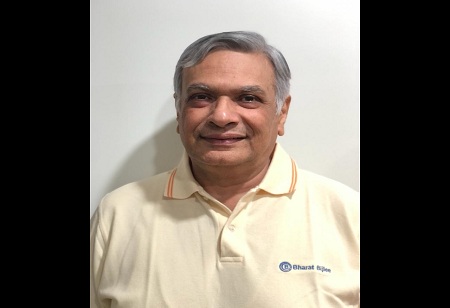In an interaction with Industry Outlook, Sunil Mistry, VP - Motors, Bharat Bijlee shares his views on the evolving market of electric motors, the need for energy efficiency, challenges in ensuring quality and achieving sustainability.
Increasing industrialization and urbanization is creating a high demand for energy efficient electric motors. How do you see the current evolution of electric motors market in India? What are the major factors driving its growth?
Electric motors are classified by their power rating, power source,
construction, commutation, etc., and range in size and application from marine propulsion to wristwatches. The
electrical systems in a typical motor car, for example, can contain several hundred motors of various ratings. However, our discussion today is centered on the Low Voltage (LV) AC integral horsepower (IHP) motors which are mainly used in industrial and commercial applications.
Motors are the prime movers for machinery across all sectors of the economy; market growth in the long run tends to mirror GDP growth, with greenfield and brownfield expansions being the major demand drivers. In the decade FY 2011 to 2020 capacity addition and expansion in most sectors was lower than in the previous decade due to various macro-economic factors that led to under-utilization of existing capacities. This led to sub-par growth of electric motor demand at about 2.5% CAGR in MW terms. As capacity utilization moves up in core infrastructure sectors there is optimism (COVID permitting) that the new decade will see consistently higher growth. Domestic motor manufacturers have proven capabilities, and imports are essential only for highly specialized motors.
What are the major challenges faced by industries using electric motors for different use cases like pumps, compressors, fans & blowers, conveyors, lifts, screen, vibrators, centrifuges, stone crusher etc. How can those challenges be addressed?
The application needs to be at the forefront of an engineer’s mind when selecting a motor; each application will have its own unique requirements that need to be evaluated and fulfilled. Proper motor selection depends on the characteristics of the driven system (i.e. the load to be handled), the input power source, and the environment in which it will operate. There are multiple interdependent parameters to be considered in matching motor specifications with the application to ensure performance, reliability and optimal capital cost.
Correct selection is essential even for a standard catalogue product. Sometimes customization becomes necessary to fulfill the specifications; quite often this can be accomplished by modification of a standard motor’s electrical or mechanical design. However, if the customer’s needs are highly specialized, it may be necessary to design a completely customised motor, with significant developmental work and investment in tooling.
As a full-range manufacturer with extensive experience in handling large project orders for core industries (steel, cement, paper, chemicals, food, infrastructure, and oil and gas) we are well positioned to work closely with customers and advise on motor selection. This means evaluating the application’s performance requirements and ensuring the motor will properly match its needs.
Our sales team undergoes regular training on applications and the selection of motors. With this, we can leverage our knowledge and experience to optimize our performance and cost offering to best suit the project’s parameters.
How is Bharat Bijlee positioned in this segment? How has been its journey in this segment since inception?
We began manufacturing motors in 1946 under the brand Bijlee. In the late 1950s we became licensees of Siemens who also marketed all our products. This was a fruitful association and continued until 1990. Today we have a complete portfolio of LV motors from 0.12 kW to 1250 kW, which enables us to meet the diverse needs of every industry sector.
We have steadily invested in augmenting our manufacturing capacity, and in building the processes and capabilities to deliver a reliable product on time to our customers. Our supply chain is designed to be agile and to consistently improve point-of-sale availability and on-time delivery. We back this up with an all India sales, distribution and service network.
